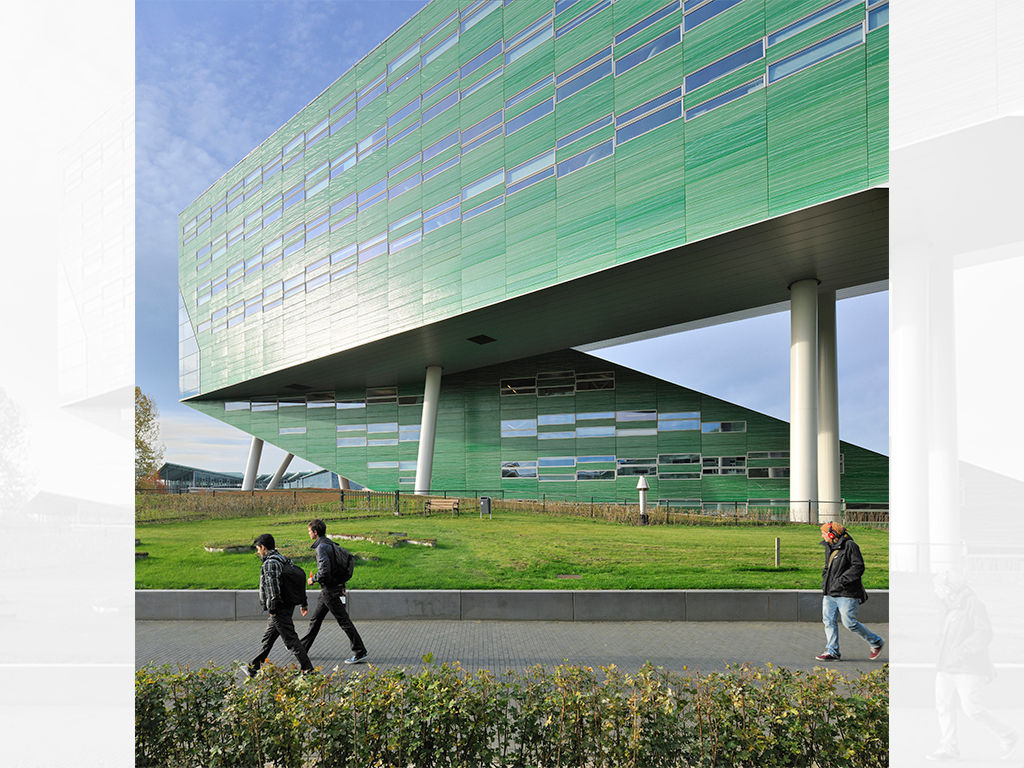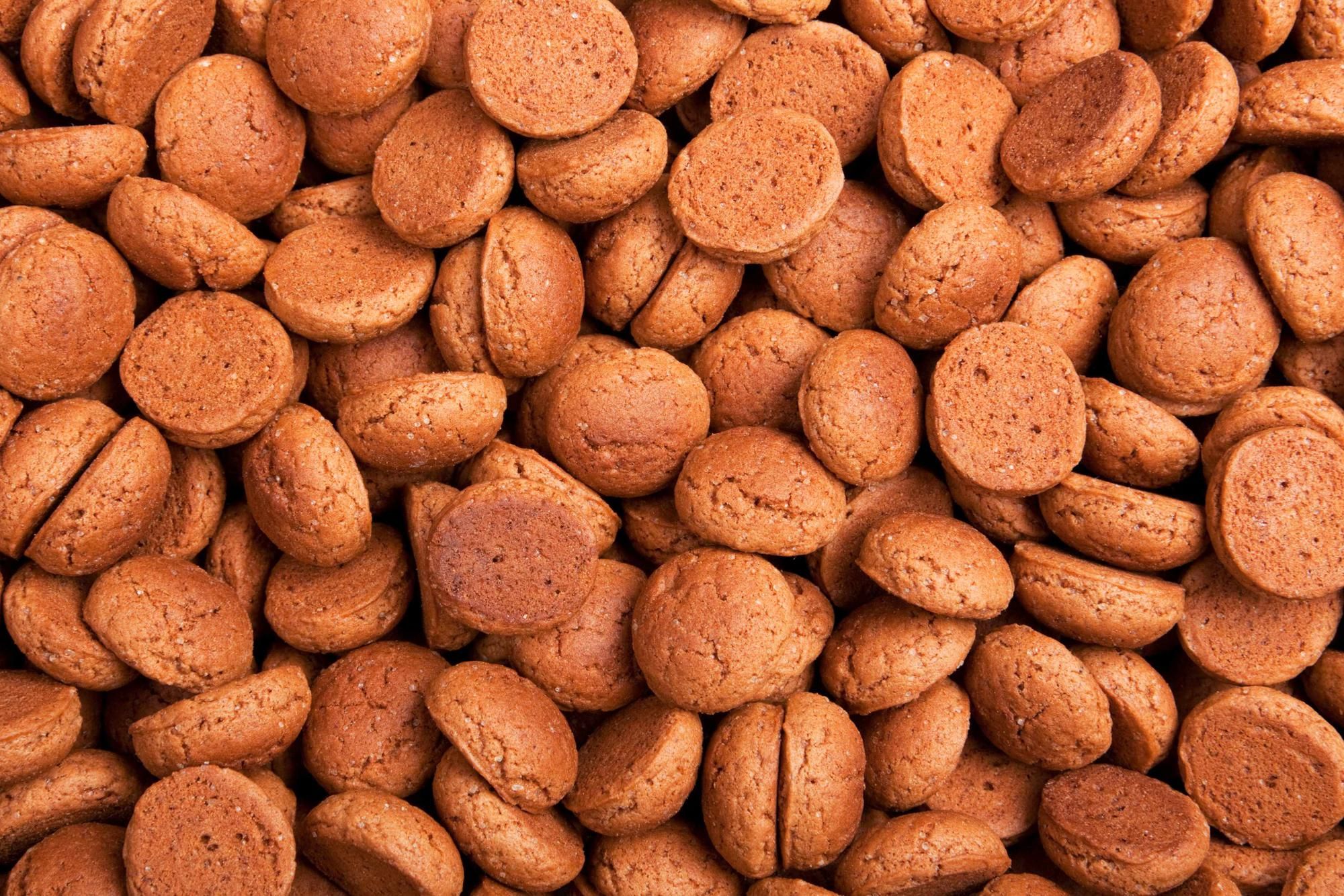Bye-o-film - a biosensor to detect and treat: ‘Say bye to biofilms’
- Marit Bonne
- Articles
- 5 minutes (981 words)
What happens if you leave 14 students alone in a lab? You defeat bacterial films on implants. It sounds like the start of a bad joke, but for roughly eight months straight, RUG students from different disciplines, varying from Design to Physics, are working their butt off to do just that. Or at least, get as far as possible.
This year’s team kindly welcomed me into their own office and lab, where they are working on their interesting project, the ‘bye-o-film’. Emphasis on THEIR, as the designated iGEM team starts from scratch in designing and performing the project every year.
Once into their lab, the acoustic versions of Taylor Swift’s music are music to my ears. In the corner, not one, but two fridges are standing, fully covered in colourful sticky notes. The team laughs. ‘There has been a lot of panic texting and calling about where a certain protocol is,’ Thomas explains. Pipettes, tubes with green and pink liquids, a microwave that works overtime: every single thing in the lab reflects the hard efforts of the past few months.
This year, iGEM Groningen focuses on the very relevant topic of detecting and treating biofilms. ‘After surgery, a big, but overlooked, problem is the formation of biofilms on implants.’ says Ingrid, involved in this year’s team. ‘Biofilm is very sticky, which prevents antibiotics from getting rid of it successfully’, she continues.
Currently, multiple surgeries are necessary to disturb the biofilm, in order for antibiotics to break it down. However, this extension of the medical intervention is costly and can induce other infections. The chemistry student knows how hard getting surgery can be. ‘I was lucky to heal fast, but I can imagine that it takes a toll on the patient’s mental health if this isn’t the case’, Ingrid says. And that’s how the project bye-o-film was born.
Most biologists are familiar with biofilms, for example, the plaques on their teeth. They also probably know how tricky they can be to treat. A biofilm is a close network of numerous bacteria that communicate with each other through quorum sensing. Luckily, we can also catch these signals, when using the correct device.
That device is nothing less than an E.coli-based biosensor. This biosensor has a genetic component that senses these bacterial communication signals and in turn, induces a diagnostic and a treatment process.
For the diagnostic process, the team decided to use light. A red light is good news: this tells you that the biosensor works, but there is no biofilm threat. A green light is when you should be cautious: that means that a biofilm is invading your implant.
The treatment phase is based on phage therapy. ‘This was a hot topic in the eighties, especially in Eastern Europe,’ Ingrid says. ‘It has been kind of left out because there were so many antibiotics widely available.’
But these antibiotics are starting to lose track: people are increasingly developing antibiotic resistance and the drugs are causing big environmental problems, the 2023 iGEM team emphasises.
Therefore, phage therapy offers a good alternative. Phages are basically viruses that infect bacteria. ‘The nice thing about them is that they don’t mutate as fast as bacteria mutate to develop antibacterial resistance,’ Ingrid says. Currently, the team is working in the lab trying to see if the phages actually manage to kill the bacteria and aid in diagnostics.
Inserting the phage doesn’t kill the bacteria itself, but eventually cuts off bacteria from the biofilm. That way, the bacteria come loose and your immune system can react with it again, Thomas notes.
Lastly, the team would also like to have a software developed that would be able to transform the biosensor data into something that you would get on your phone and see the state of your infection.
‘During the iGEM project, we have limited time and resources so we’re not going to have a functional product, it’s more a proof of concept,’ Mirela says.
When I say project, I’m saying a PROJECT. iGEM is more than answering a research question. Everything, from acquisition, to web design, to lab work, needs to be done by the students working there. Of course, they get a little guidance, but, as Mirela puts it nicely: ‘You get thrown into the deep, but also learn how to swim really quickly.’
‘You get so much confidence in your own lab skills,’ she continues. Thomas and Ingrid agree with her. ‘You are free to do what you are interested in,’ Ingrid adds. Thomas also joined iGEM because he wanted to focus more on the financial aspect of the project. ‘The laboratories themselves are quite expensive and you need to manage that as well.’
The rest of the roles were distributed very organically, the team agrees. ‘Although Jelle is our Labking,’ they laugh in sync. Jelle maps out what needs to be done in the lab, while the rest of the team carries out the tasks. ‘Teamwork in courses is nothing compared to iGEM. Here, you really learn how to work together,’ Mirela says.
For now, the team will continue to work on the project. In November, they will go to Paris to present their project and compete with the other iGEM teams around the globe. Hopefully, they will win a nice prize, but even when they won't, the skills and memories created during iGEM are worth gold.
What is iGEM?
iGEM is a yearly competition organised by the International Genetically Engineered Machine Foundation, where all high schools and universities all over the world can participate by forming a team. These teams will come up with a creative genetic engineering project on one of the following categories: diagnostics, therapeutics, climate crisis, environment, conservation, food & nutrition, bio-manufacturing, industrial scale-up, energy, foundational advance, software & AI, and high school.



Comments
Log in to read and post comments